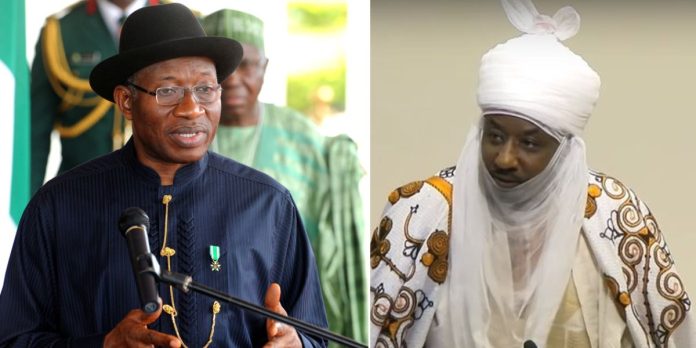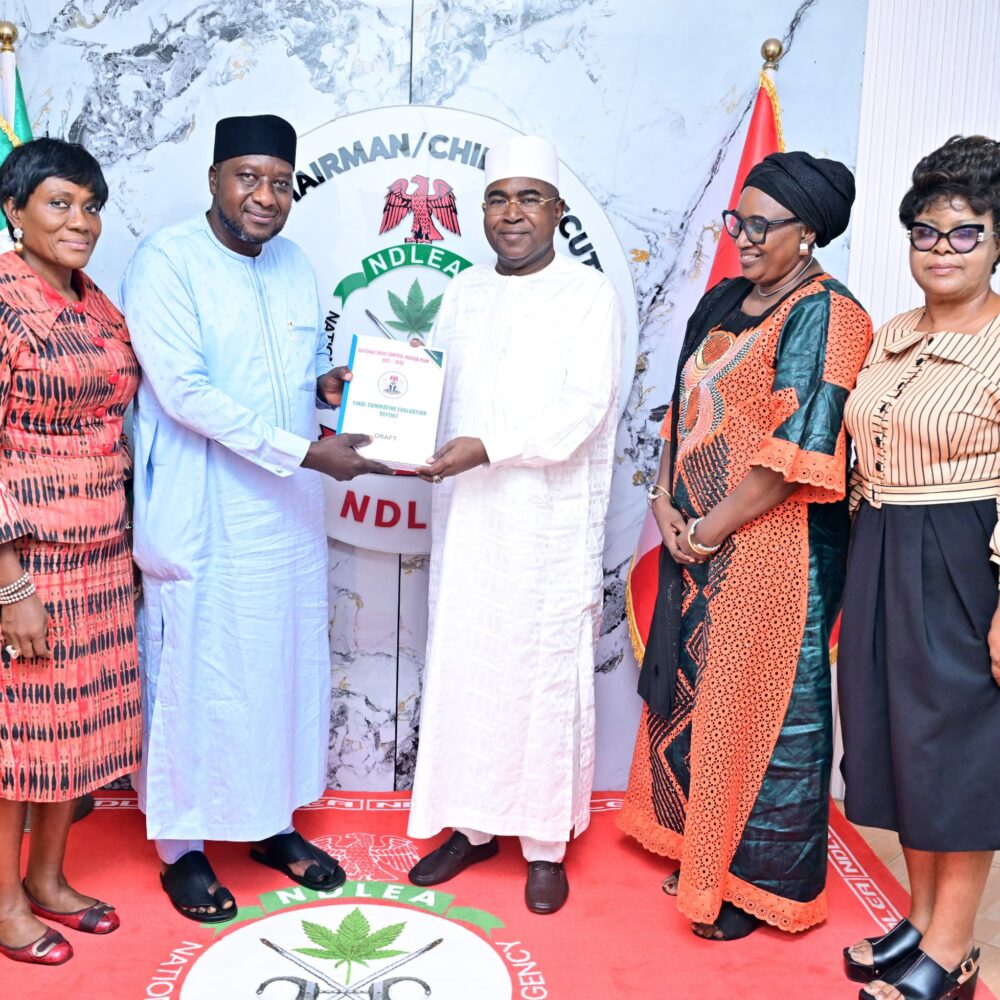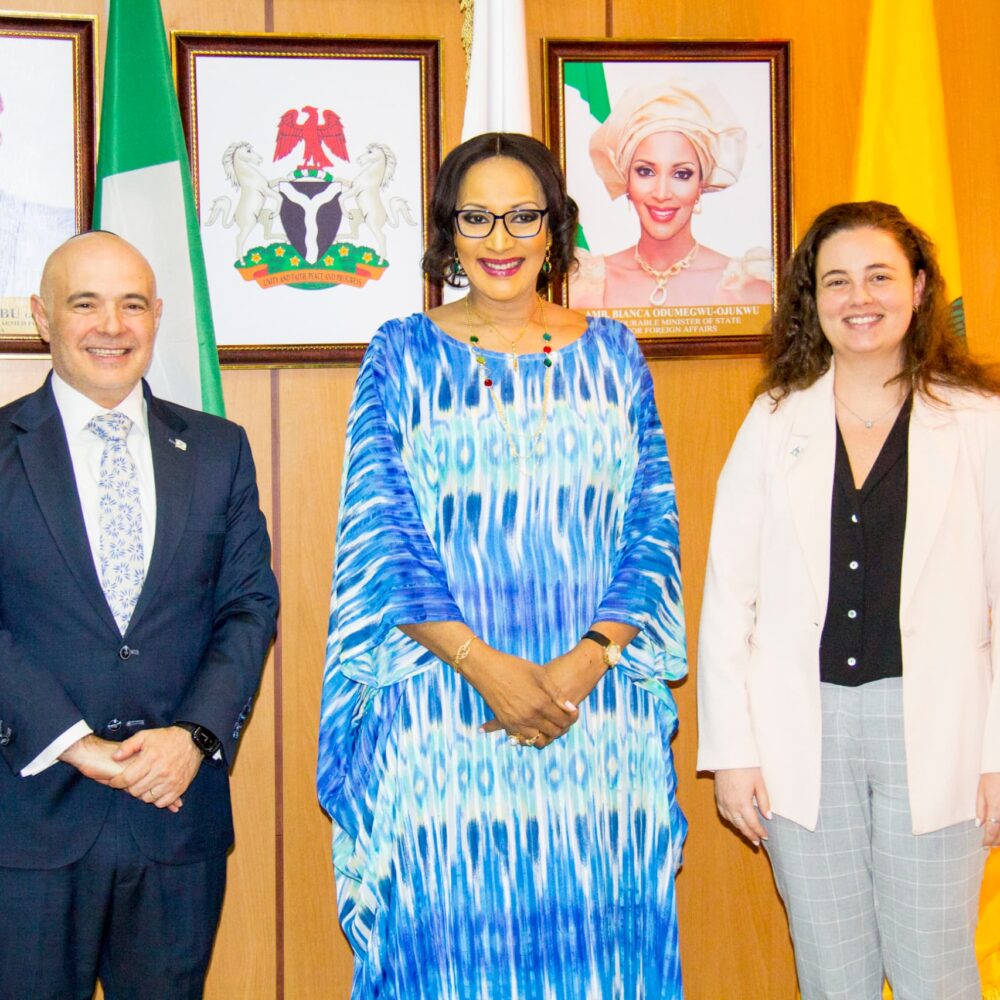Former President Goodluck Jonathan has refuted claims by the 16th Emir of Kano, Muhammadu Sanusi II, that he was removed from office as CBN Governor over $49.8 billion allegedly stolen when the former President was in office.
Recall that Sanusi served as the Governor of the Central Bank of Nigeria (CBN) from 2009 to 2014, during President Jonathan’s tenure.
In 2014, Sanusi claimed that Nigeria had lost $49.8 billion under Jonathan’s administration, a statement that sparked significant controversy and led the government to establish a committee to investigate the allegation.
Shortly after, Sanusi was placed on indefinite leave, and Godwin Emefiele was appointed as his successor. Following his time at the CBN, Sanusi became the Emir of Kano but was dethroned in 2020 and recently reinstated.
In his new book, titled Public Policy and Agents’ Interests: Perspectives From The Emerging World, Sanusi reiterated his allegations and accused Jonathan of orchestrating his removal. The book was edited by former Finance Minister Shamsuddeen Usman.
Speaking at the book launch, former President Jonathan said Sanusi was not sacked because he blew a whistle that the Federal Government lost $49.8 billion but suspended because the Financial Reporting Council questioned the expenditure of the CBN under his tenure.
He said: “I do not agree completely with some of the issues raised by one of the contributors. But I don’t intend to join issues because he is our royal father. But because I have the opportunity to be here on some issues. The one he raised that he was sacked because he blew a whistle that the Federal Government lost $49.8 billion is not quite correct.
“He was not sacked but suspended because the Financial Reporting Council questioned the expenditure of the CBN because it is the FRC that has the power to audit the CBN not the Auditor-General because of serious infractions that needed to be looked at. That was the reason. But somehow, the time was short. Before we finished, his tenure elapsed. Probably, he would have been called back.
“On the issue of $49.8 billion, I am not convinced we lost such money. Let me tell you about a personal experience. The African Union Presidents had a meeting in Belgium and during those meetings, we had bilateral talks. The Chancellor of Germany then, Angela Merkel, requested that we should have bilateral meetings and I went there with some of my ministers. Even before I sat down, the German Chancellor said they heard that some money was missing, that what is happening.
“I said Madam Chancellor, the economy of Germany is strong, so if you lose $50 billion, you might not notice it but if Nigeria loses $50 billion, the government won’t be able to pay salaries. Then she said even in Germany, $50 billion is a lot of money and she didn’t ask further questions. And of course, that year our budget was $31.6 billion. So, for a country that has a budget of $31.6 billion to lose $50 billion and salaries were paid, then the researchers shouldn’t research more.
“So, when our revered royal father came up with figures; first $49.8 billion, later $20 billion, and later $12 billion, I don’t even know the correct figure. Immediately after that thing happened, we engaged PwC, which is one of the best financial firms, to do an audit. The report they came up with said there is $1.48 billion that the NNPC didn’t give a proper account, asking the NNPC to pay the money to the federation account. They didn’t say we lost any amount.
“The Senate finance committee headed by Makarfi engaged external professional auditors to look into it and they didn’t find any missing money.
:So, I am pleading that when we are giving accounts of our stewardship, at least, if so, someone reading the book won’t go with the impression that $50 billion was lost during Jonathan. I didn’t steal billions of dollars as president.”
But in his response, Sanusi, who served as guest of honour at the occasion, stated that on the $48.9 billion saga and allied matters, he would not respond to his former boss out of respect.
Sanusi said, “I know everyone is expecting to hear me respond, but I will not respond. When I was told to make a speech, I told Shamsuddeen Usman that I will not speak about my intervention, out of respect for my boss, the president.
“I feel most inappropriate for this to turn into a debate. It’s not about me or the president, it’s really about Dr. Usman today and his book. I always knew my chapter will be controversial when Dr. Usman asked me to write.
“But the most important thing for me is not about personalities. I think what comes out of my chapter, like in the book, is something that we all know. Which is that for decades, the Nigerian state has been captive to an elite class that sees the state as a site.
“This is a fact, and this is what has destroyed Nigeria. People get into office, and when they get into office, what they’re thinking of is how much they can make out of the state, rather than how they can use the state to serve the citizens. If we agree on that, we have no disagreements.”
However, concerning the Dangote refinery, Sanusi said, “For feeding itself from imported petroleum products, instead of grabbing this opportunity, you know with open arms, we are frustrating it.
“Why would anyone stop us from having the capacity to produce our own refined petroleum products? Because there are vested interests who have profited from Nigeria if the country continues to import these products.
“They could be all marketers internationally. They could be people locally who have been profiting from these subsidy stamps. And this is the end, because every excuse disappears when you are not getting imported, and you are disembarking.
“And these are the kind of instances and examples that we see, left, right, and centre, which continue to get in the way of Nigeria transitioning to a developmental state.”





